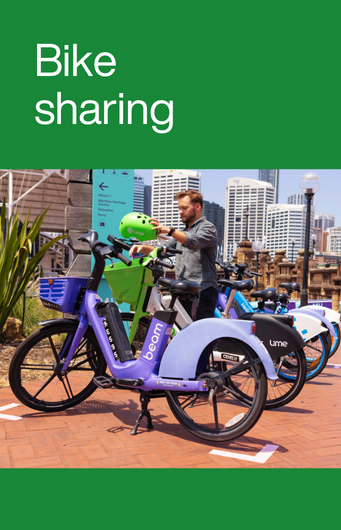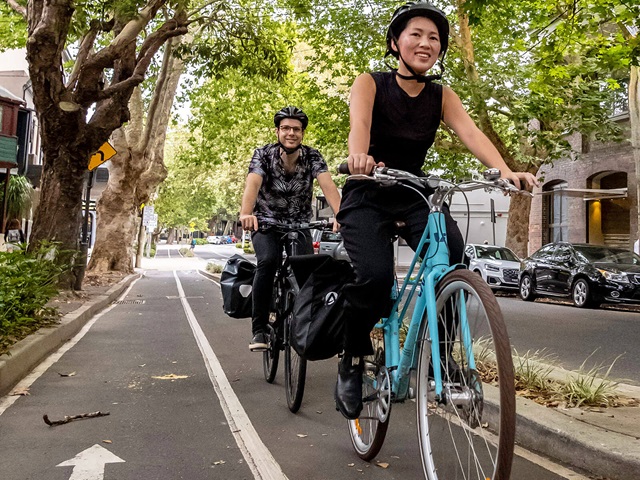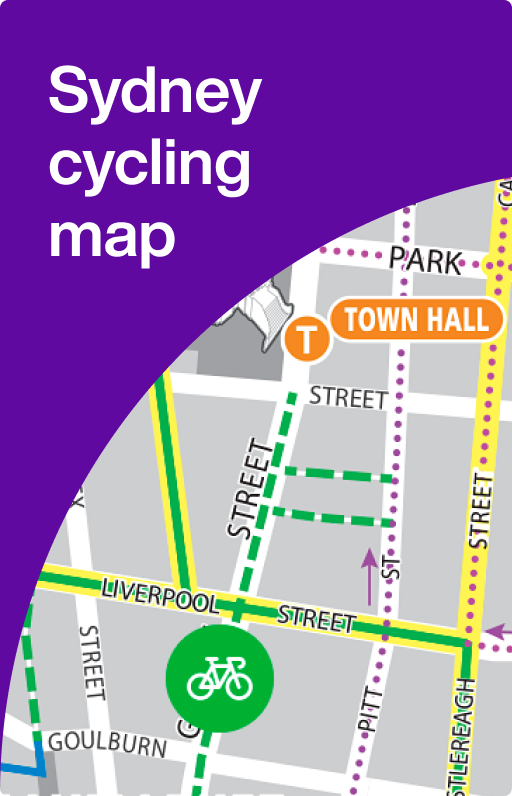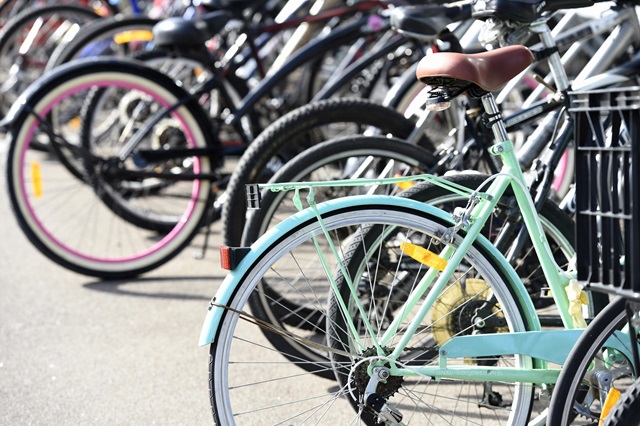
Why it’s important
- Bike share schemes play an important role in our future transport, including healthier lifestyle choices and decarbonising Sydney.
- Each day around 5,300 trips are made on share bikes in the City of Sydney area, resulting in a decrease in carbon emissions of 80–150g each trip.
- There were more than 1.9 million share bike trips in our area in 2024 and since 2019 there have been more than 4.1 million trips.
Bike share enquiries
We don’t manage bike sharing. Private companies operate bike share schemes. All share bikes should have contact information for the operating company on a sticker on the bike.
Report bikes damaged or parked in a dangerous place directly to operators.
Guidelines for bike riders
Bike parking
Check the bike share app to make sure you’re following parking rules. Bike share companies may issue a fine or ban if you don’t park correctly.
Consider the safety and comfort of all footpath users by parking bikes in a responsible and courteous manner. Keep footpaths and building walls clear for people walking or travelling along the street.
Park share bikes near bike racks but don't take up space for other users.
There are more than 3,000 bike parking places in our area. You can request bike parking on City of Sydney land.
Shared bikes can be moved if they're blocking the way or you can contact the relevant operator.
If a shared bike is causing a serious hazard, contact the City of Sydney.
Responsible riding
You must wear a helmet when riding share bikes. If the share bike doesn’t have a helmet, report it to the operator.
NSW road rules need to be followed at all times. NSW police enforce the road rules and can issue penalties for offences.
Contact the Police Assistance Line on 131 444 for more information.
Guidelines for bike share operators
In December 2017, 6 Sydney councils produced the inner Sydney bike share guidelines. These guidelines set out expectations for dockless bike share operators.
They were produced by Canada Bay, the City of Sydney, Inner West, Randwick, Waverley and Woollahra councils with bike share operators and other stakeholders.
The guidelines:
- Inform customers about correct bike parking and responsible riding.
- Monitor the location of all bikes daily to avoid build-up in an area.
- Enable easy reporting of faulty or damaged bikes, or bikes parked in inappropriate locations, through an app, by email or phone.
- Remove faulty or damaged bikes promptly.
- Have a means to track bicycles, such as GPS.
- Promote legal and responsible riding when members join and regularly afterwards.
- Share data with government agencies for transport and urban planning.


